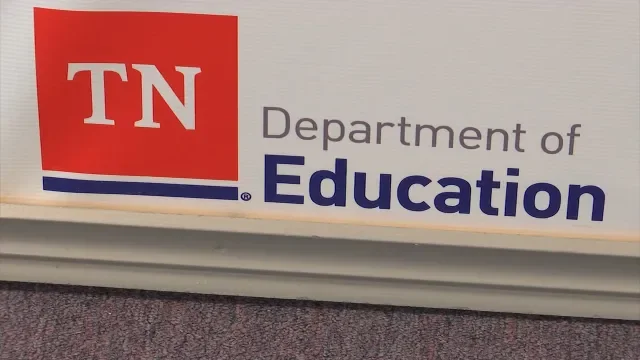DATA AND POLLING INFORMATION
Blackburn held the support of 60 percent of the 484 Republican voters surveyed online in the poll, well ahead of Congressman John Rose’s 10 percent and State Representative Monte Fritts’ five percent.
A new national survey reveals that most parents would send their children to private or religious schools if public funding were available, signaling a major shift in attitudes toward school choice. The 57th annual PDK Poll also found declining confidence in public schools, urgent concerns about teacher pay and staffing shortages, and broad opposition to eliminating the U.S. Department of Education.
The Beacon Center says 66 percent of respondents said they support Blackburn compared to the 14 percent who chose Rose. 19 percent of voters were undecided.
TSS’ poll of 1,000 Republican voters found 86 percent consider it important for public school students to receive annual statewide assessments and 91 percent support holding teachers accountable for the success of their students.
Both polls asked voters for their support of key education policies that have been backed this year by Republican leaders, including President Trump and Governor Bill Lee.
That poll of 400 parents across the state last month by Public Opinion Strategies found 58 percent of respondents believe charter schools produce better results than traditional public schools, including nearly two-thirds of voters of color.
A new report from the Brookings Institution says that parents “consistently overestimate the quality of learning experiences that students report having in school” as K-12 schools struggle to maintain student engagement.
A new statewide poll from the Beacon Center of Tennessee indicates that 61 percent of Tennesseans support expanding charter schools statewide, with only 14 percent in opposition.
A new report from the American Institutes for Research (AIR) suggests that gender stereotypes remain a major barrier to increasing women’s participation in science, technology, engineering, and math (STEM) related fields.
A new poll from Vanderbilt University notes that parents are growing increasingly concerned about not having enough money to support their children’s education, among other findings.
A recent report from the education advocacy organization 50CAN indicates that overall school satisfaction in Tennessee is similar to the national average, despite some differences across income levels.
A new report from the Grad Partnership notes that high school graduation rates in Tennessee have remained relatively stable in recent years, compared to 26 states that witnessed declines in high school graduation rates following the COVID-19 pandemic.
Despite witnessing a decline in first-time freshmen enrollment, overall enrollment has increased across Tennessee’s public colleges and universities, according to recent data from the Tennessee Higher Education Commission.
A record-breaking number of students applied for the Tennessee Promise program, with over 67,000 applicants from the Class of 2025, an announcement from the Tennessee Higher Education Commission (THEC) said.
A new study published by Brown University’s Annenberg Institute indicates that middle school students in the state’s two primary school turnaround models have made very little academic progress in recent years.
New data from the Tennessee Department of Education shows that the statewide graduation rate from the 2023-24 school year was 92.1 percent, breaking the previous record achieved in the 2022-23 school year at 90.6 percent.
A new report from SCORE notes that “too many Tennesseans are still not realizing the full economic benefits of their education,” despite the state’s efforts in recent years to expand access to higher education and workforce training. To help address the issue, SCORE developed a framework for measuring the value of workforce credentials.
A new survey study from the Applied Social Research Lab at East Tennessee State University indicates that 56 percent of Tennesseans believe the state is “headed in the wrong direction.” Respondents cited concerns over the economy, as well as a divide over Tennessee school districts’ efforts to ban inappropriate books from school libraries.
Schools like Leadership Preparatory Charter School in Memphis and KIPP Antioch College Prep Elementary (KACPE) in South Nashville have invested heavily in professional development efforts to better prepare teachers for working with multilingual learners and students from underserved backgrounds.
A new study from the Progressive Policy Institute indicates that low-income students in both public charter schools and traditional public schools in 10 major cities are catching up to statewide performance levels.
A new statewide survey from the Beacon Center of Tennessee found that Tennessee voters are “more likely to vote for candidates” who support school choice by a 40-point margin.
Learn more about the recent Beacon poll findings.
A new study published in Sage Journals suggests that Black female students in Nashville have significantly less confidence in math than their male counterparts due to internalized stereotypes about race and gender, as well as concerns about the quality of instruction. Learn more about the study's findings and conclusions.
A new report from the Georgetown University education think tank FutureEd notes that 569,000 K-12 students received public subsidies for private schooling in 2023-24 across eight states with universal school choice programs.
A recent parent survey study from the education advocacy organization TennesseeCAN indicates that despite overall satisfaction with school choice in Tennessee and parents’ understanding of student performance, only about 46 percent of parents in Tennessee are “very satisfied” with their children’s schools. Learn more about the survey's findings.
A new memo from the State Collaborative on Reforming Education (SCORE) says that more than half of U.S. teachers have never used artificial intelligence tools, despite the growing popularity of AI-driven ed-tech platforms and their potential to enhance instruction.
Learn more about how educators can make use of AI tools for content creation and lesson planning.
The university has had another historic year for enrollment, retention and graduation rates, according to recent data.
Despite increased investments in academic support to combat “learning loss” that came as a result of COVID-19, a recent report from Brown University researchers suggests students in Metro Nashville Public Schools are not benefitting much from tutoring.
A recent study from the Thomas B. Fordham Institute suggests that socio-economic factors like household income and parents’ education play a role in perpetuating schools’ racial achievement gaps.
While recent state assessment data trends show that students throughout the state are making gains in literacy, officials from the Tennessee Department of Education say more work is needed to maintain that progress moving forward.

Tennessee Teacher Evaluations Poll
How often should teachers in Tennessee be evaluated?

Tennessee Governor's Race Poll
If the Tennessee Governor's race were to be held today which candidate would you support?






























A new memo from the State Collaborative on Reforming Education (SCORE) says the Tennessee Investment in Student Achievement (TISA) school funding formula has had a “positive impact” on schools’ efforts to improve student outcomes.